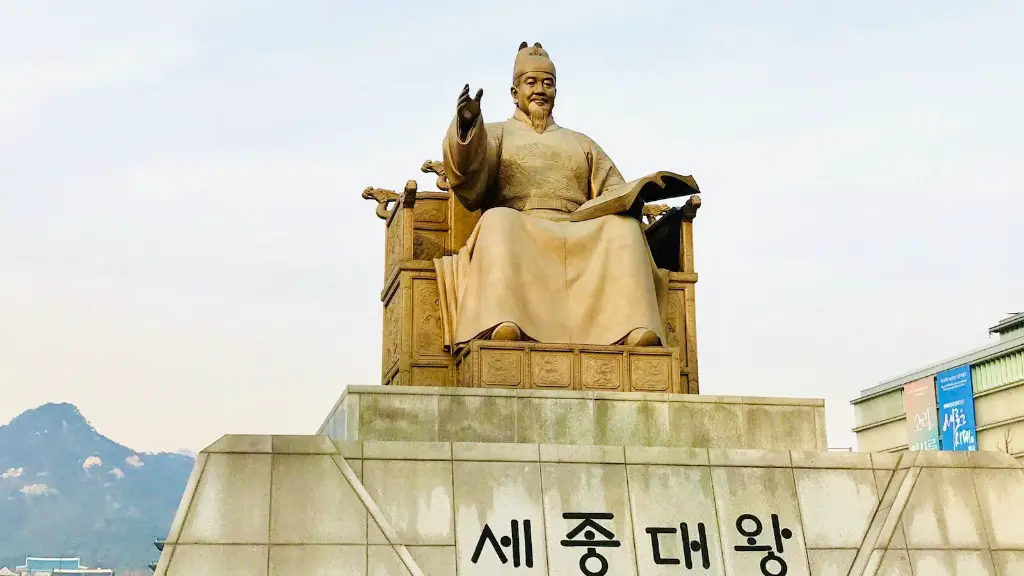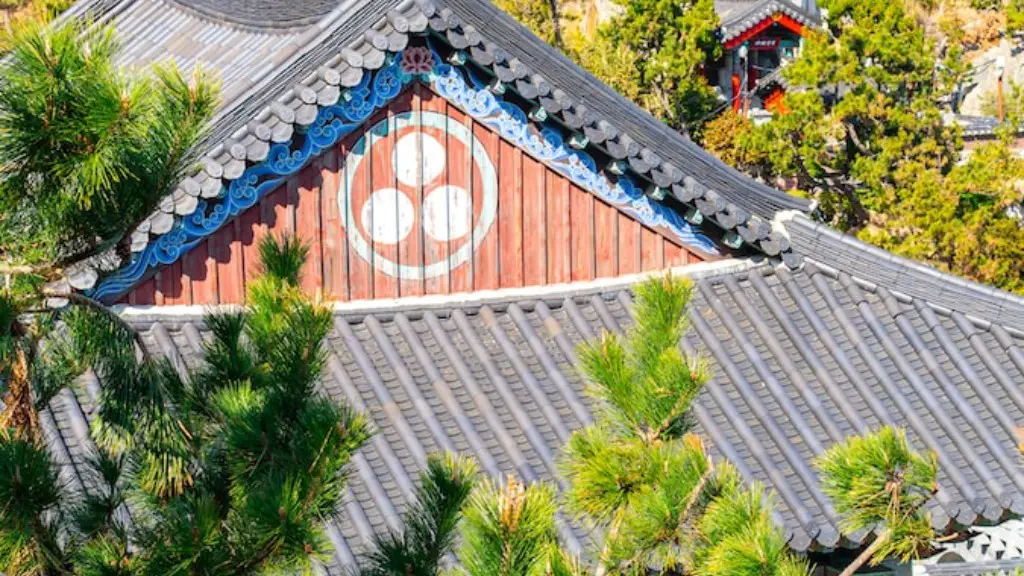History of North Korea and its Nuclear Program
North Korea has had a long and turbulent history. After the conclusion of the Korean War in 1953, the Soviet Union and China supported North Korean leader Kim Il-sung, who established a one-party dictatorship in the country. Throughout the Cold War period, the North Korean government maintained close political and military ties with the Soviet Union. Furthermore, during the war and for decades thereafter, South Korea maintained strong alliances with the United States and other Western countries.
By the early 1990s, North Korea’s economy had deteriorated drastically, suffering from the collapse of its Soviet benefactor, as well as from a series of major floods. In order to revive the country’s stagnating economy, North Korean leadership began to explore the development of nuclear weapons in the early 1990s. In 1992, the United States and North Korea signed the Agreed Framework, in which the former promised to provide the latter with two light-water nuclear reactors and fuel oil in return for North Korea’s halting of its nuclear program.
North Korea’s Nuclear Program and its Military Ambitions
The Agreed Framework, however, soon failed and in 2003 the North Korean government announced that it would be withdrawing from the Nuclear Non-Proliferation Treaty (NPT). North Korea then resumed its nuclear program and in 2006, carried out its first nuclear test. In 2006, the United Nations Security Council imposed economic sanctions on North Korea in response to its nuclear tests, prohibiting it from trading or importing certain types of weapons and materials.
According to experts, a key motivation behind North Korea’s nuclear program is the country’s desire to protect its sovereignty from external threats. In particular, North Korea has sought to counter the US-South Korean security alliance by demonstrating its capacity to launch a nuclear attack on the South. North Korean leaders have also sought to put pressure on the US to enter into negotiations over security issues in the Korean peninsula.
North Korea’s Nuclear Weapons Stockpile and Missile Deterrent
Since 2006, North Korea has conducted six nuclear tests and continues to develop its weapons stockpiles. Estimates of North Korea’s nuclear arsenal range anywhere from 10 to as many as 30 weapons. Alongside its nuclear weapons program, North Korea has pursued the development of long-range ballistic missiles, which give the country the capacity to deliver a nuclear attack on its enemies.
In recent years, North Korea has used its nuclear and missile programs as a deterrence against any potential military action by US-South Korean forces. In particular, North Korea is believed to have deployed its weapons in forward-based locations in order to enable it to launch a nuclear attack against its enemies with little or no warning. This has been a major factor in dissuading the US and South Korea from engaging in a military conflict with North Korea.
International Community’s Response to North Korea’s Weapons Program
The international community has responded to North Korea’s nuclear weapons program with a mix of condemnation and deterrence. The UN Security Council has continued to impose strict economic sanctions on the country in an effort to persuade North Korea to halt its nuclear program. Additionally, South Korea and the United States have maintained a policy of strategic deterrence against North Korea, involving both economic sanctions and a military buildup along their shared border.
Despite its efforts, the international community has so far failed to convince North Korea to abandon its weapons program. This has prompted many countries, particularly the US and China, to focus more on negotiating with North Korea in order to find a diplomatic solution to the issues surrounding the country’s nuclear weapons program.
Issues around a Negotiated Peaceful Solution
Negotiations between North Korea and the international community have had limited success. North Korea has insisted on a lifting of economic sanctions and the normalization of relations with the US in exchange for the denuclearization of the Korean peninsula. However, the US has demanded that North Korea give up its nuclear weapons program before any diplomatic talks could take place. This has resulted in an impasse, with both sides unwilling to make any concessions.
At the same time, North Korea has repeatedly threatened to launch nuclear attacks against its enemies, including the US and its allies. This has raised fears that North Korea could cause a major global conflict if it felt provoked and led many to question the efficacy of negotiating with the country.
Military Posturing by North Korea
In recent years, North Korea has stepped up its military posturing, conducting a series of long-range missile launches and issuing warnings about its nuclear capabilities. This has only further exacerbated tensions between North Korea and its enemies, with South Korea and the US engaging in joint military exercises in an effort to counter any potential threats from the North.
In response to the increased military activity, North Korea has continued to refer to itself as a nuclear power and has threatened to launch pre-emptive strikes against its enemies. This has caused further alarm in the international community and raised the prospect of a major conflict in East Asia.
Concerns and Implications of North Korea’s Nuclear Weapons
The continued development and testing of North Korea’s nuclear weapons have raised grave concerns in the international community. There is a fear that the country could use its nuclear arsenal to threaten its neighbours, or even launch a pre-emptive strike against the US or other countries.
In addition, North Korea’s nuclear program serves as a major hurdle in efforts to achieve peace in the Korean peninsula. In particular, North Korea’s nuclear weapons have been seen as a major obstacle to negotiations between the US and North Korea on issues of security in the region. This has led to further tensions and an increased threat of conflict in the region.
North Korea’s Role in Non-Proliferation Efforts
Despite the international community’s efforts to persuade North Korea to abandon its nuclear weapons program, the country continues to pursue the development of its weapons stockpile. As a result, North Korea has been accused of undermining global efforts to limit the spread of nuclear weapons.
At the same time, North Korea has refused to join international efforts to promote non-proliferation. This has added to the concerns of many in the international community that the country could use its nuclear weapons to cause havoc in the region.
Regional Conflict and the Prospect of War
The continued development of North Korea’s nuclear arsenal has raised the prospect of a major regional conflict in East Asia. North Korea’s neighbours, particularly South Korea and Japan, have been alarmed by the country’s military buildup and have engaged in their own defensive preparations.
At the same time, the US and other member countries of the United Nations have maintained a policy of deterrence against North Korea, in an effort to discourage the country from launching any military action. This has had limited success, as North Korea continues to test its weapons and increase its military posturing.
Impact of North Korea’s Weapons Program
The North Korean nuclear weapons program has had a major impact on the security of the region. The country’s weapons stockpile has been seen as a major obstacle to peace and stability in the region, and has raised the prospect of war in East Asia.
Furthermore, the international community has been unable to persuade North Korea to abandon its weapons program, and the country continues to pose a threat to its neighbours. As a result, tensions in the region remain high, and the threat of a major international conflict looms.


